Allocating Judicial Standards Commission to the Department of Justice
House Bill 35 proposes reallocating the Judicial Standards Commission to the Department of Justice. The Senate Select on Judicial Oversight and Reform requested this bill for the 2025 Legislative Session.
Sponsor: Representative Fiona Nave (R-Columbus)
This is a Senate Select Committee on Judicial Oversight and Reform requested bill.
Background
The Judicial Standards Commission (JSC) was established in 2023 to investigate complaints of judicial misconduct. It is currently housed within the judiciary and operates with funding from the Judicial Branch Pay Plan under§ 3-1-130, MCA. It is administered through the Court Administrator’s Office, which provides the necessary budgetary and administrative support.
HB 35 proposes to transfer the Judicial Standards Commission (JSC) to the Department of Justice (DOJ) for administrative purposes only. As defined by§ 2-15-121, MCA, the administrative attachment allows the entity to operate independently while requiring it to submit budgetary requests, reports, and communications through the attached department, in this case, the DOJ.
What concerns have been raised regarding HB 35?
1. Threat to Judicial Independence
The DOJ, led by the Attorney General, appears before judges across Montana. Overseeing the JSC, which disciplines judges, could create a conflict of interest. If the DOJ oversees the JSC, concerns about impartiality and fairness in judicial proceedings could be raised.
The independence of the judiciary is a constitutional safeguard to ensure judges can make decisions free from external pressures. Transferring the JSC undermines the judiciary’s constitutional authority to self-govern.
2. Conflict of Interest
The Attorney General’s Office, which appears before judges statewide, should not have oversight over the JSC, the body responsible for judicial discipline, as this creates a direct or perceived conflict of interest.
3. Unnecessary Administrative Changes
The JSC already operates effectively under the Court Administrator’s Office and does not require budgetary or administrative support from the Department of Justice, making the proposed move unnecessary.
4. Separation of Powers Violation
The Montana Constitution explicitly separates legislative, executive, and judicial powers, and the proposed changes in HB 35 interfere with the judiciary’s authority over its own rules and disciplinary procedures.
5. Transparency and Accountability Risk
Moving the JSC under the DOJ could subject its records to additional review, potentially jeopardizing confidentiality in judicial disciplinary matters and undermining public trust in an independent judiciary.
